Fortinet Acquires Next DLP Strengthens its Top-Tier Unified SASE Solution
Read the release
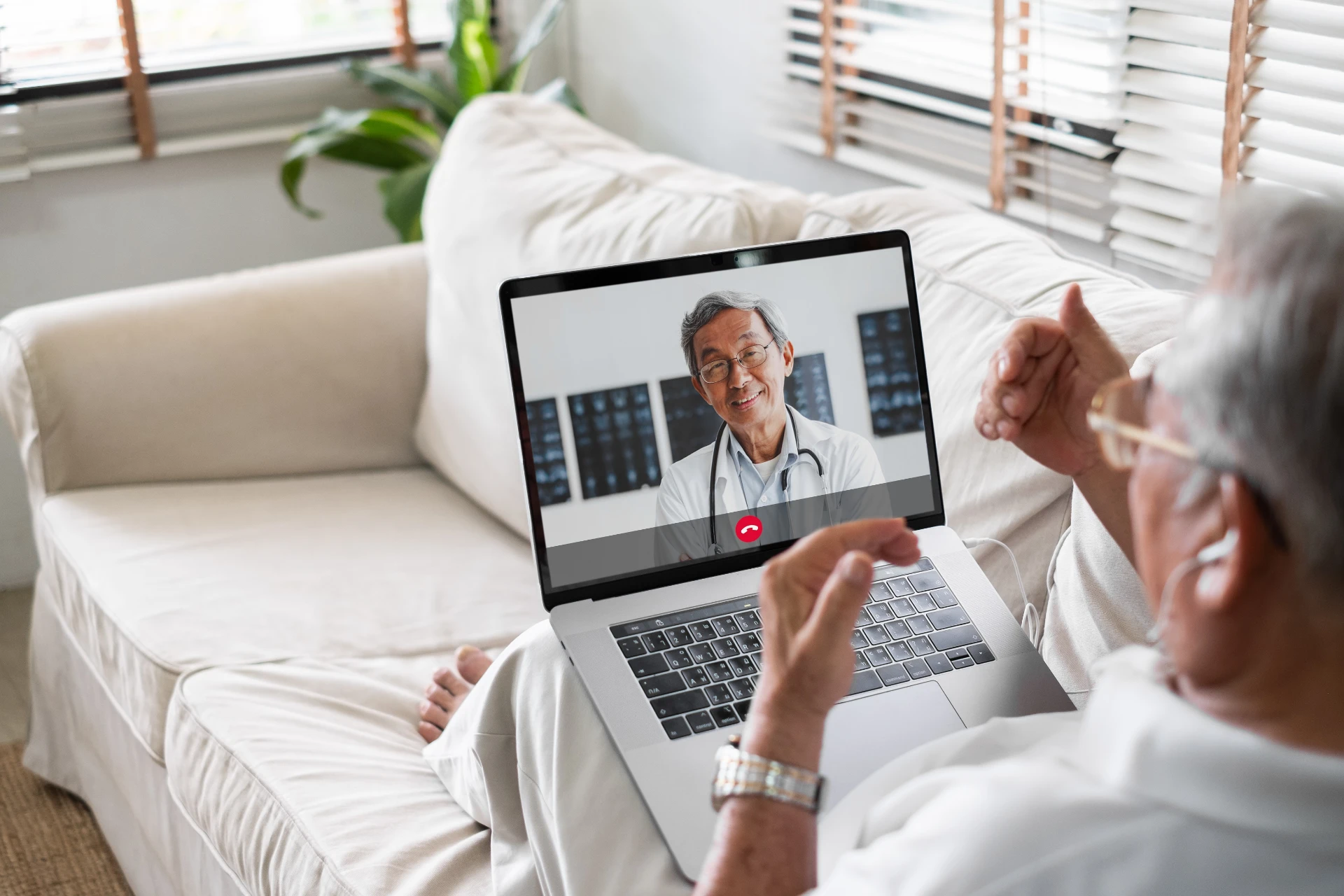
Telehealth is a convenient and sometimes lifesaving way for patients to access care. While there’s no replacement for in-person assessments, telehealth platforms offer remote communication, making it easier than ever before for patients to quickly contact their healthcare providers.
Health information technology is rapidly advancing, and with it, the delivery of patient care evolves. With the demand for telehealth services set to grow even more in 2024, it’s never been more important for practices to embrace this technology. However, organizations must be able to adequately protect health information when utilizing third-party software solutions.
Data privacy, security risks, and HIPAA compliance (and the penalties that result from non-compliance with HIPAA guidelines) are big stumbling blocks that prevent many providers from offering this option.
Fortunately, HIPAA-compliant telehealth platforms eliminate the confusion, helping you stay compliant while offering more flexibility and enabling you to provide a greater level of patient care. Consult this guide for a list of features to look for in a HIPAA-compliant telehealth service and the ten best platforms of 2024.
In this article:
The Office of Civil Rights (OCR) exercised HIPAA enforcement discretion during the COVID-19 pandemic, allowing patients access to vital healthcare despite the limitations posed by the pandemic and patient privacy laws.
OCR recognized that physicians and other healthcare providers may have needed additional time to comply with HIPAA rules, such as switching to a HIPAA-compliant telehealth vendor or revising policies to ensure compliance. Healthcare providers were given a 90-day transition period to move to HIPAA-compliant telehealth vendors after the COVID-19 public health emergency (PHE) ended on May 11, 2023.
During this transition period, OCR did not impose penalties on covered healthcare providers for noncompliance with the HIPAA Rules that occur in connection with the good faith provision of telehealth.
To ensure HIPAA compliance, healthcare providers should opt for HIPAA-covered telehealth platforms that offer secure video conferencing and data transmission to preserve confidentiality during remote care. It is important to use a secure platform for virtual visits to address privacy concerns and protect patient information. By using a HIPAA-compliant telehealth vendor, healthcare providers can continue to offer telehealth services in a secure and compliant manner.
 |
OCR has released resources on telehealth risks and additional guidance on telehealth remote communications. In order to help patients understand the privacy and security risks associated with telehealth services, OCR has issued a resource document titled Telehealth Privacy and Security Tips for Patients, as well as a resource for healthcare providers on how to adequately educate patients on the privacy and security risks of utilizing telehealth services. These documents also provide ways to reduce these risks.
OCR has also provided guidance on how covered health care providers and health plans can offer audio-only telehealth services in accordance with HIPAA Privacy, Security, and Breach Notification Rules following the expiration of OCR's Notification of Enforcement Discretion for Telehealth.
The convenience of digital healthcare comes with the responsibility of protecting patient information. While your organization still bears the burden of compliance, HIPAA-compliant telehealth platforms handle patient data with the utmost security and privacy.
Every telehealth platform is different, but these are the most valuable features to look for:
There are plenty of HIPAA-compliant telehealth software platforms on the market, but not all are well-known or reputable. Choose from these top ten options of 2024 to balance convenience with security.
Note that the HIPAA-compliant telehealth platforms are listed below in alphabetical order; otherwise, they are not ranked or rated in any way.
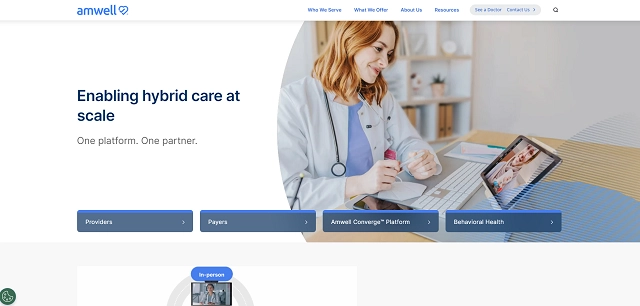 |
The Amwell Converge platform is designed for hybrid care. If you're a healthcare provider who meets patients in person and want to conduct remote follow-ups, Amwell offers a compliance-first structure for this hybrid approach. Connect clinic data with remote patient interactions to enjoy an all-in-one view of patient care.
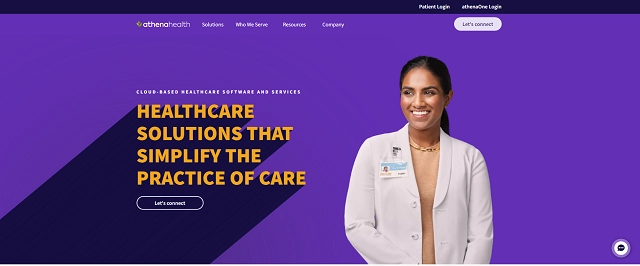 |
Athena bills itself as an all-in-one healthcare platform for healthcare providers. This compliant platform lets you manage electronic health records, revenue, and patient engagement. It also lets you connect with consultants and other healthcare providers via a third-party marketplace.
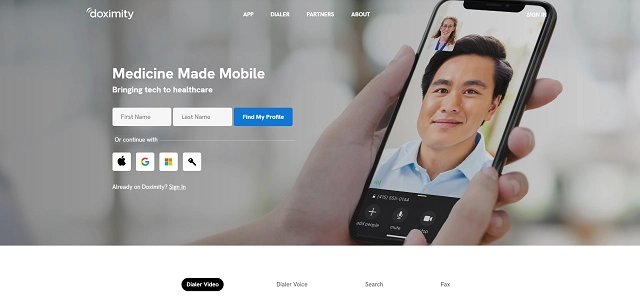 |
With Doximity, you can send patients no-reply text messages, schedule video calls, or send HIPAA-compliant messages to colleagues. There’s no app to download; it works on all smartphones. Doximity has fewer practice management features than the other tools on this list, but it’s perfect for small practices that want a HIPAA-compliant telehealth tool.
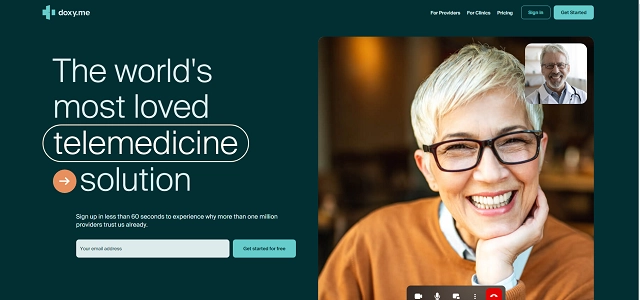 |
Doxy.me is a compliant solution that doesn’t require a software download for providers or patients. Use it on mobile or desktop devices to quickly connect with patients in a user-friendly platform. It also includes optimized clinical workflows to make your organization more efficient.
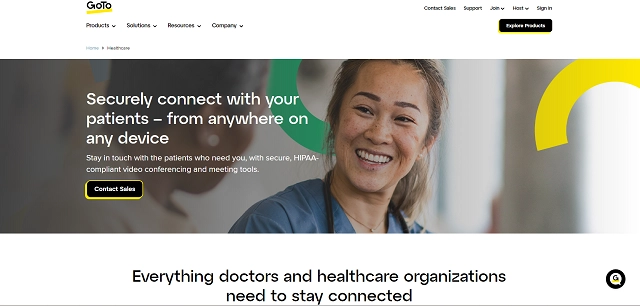 |
GoToMeeting is a HIPAA-compliant telemedicine option that provides providers and patients with a wide range of secure meeting tools. This platform allows for video calls, chats, and phone calls in a secure, on-the-go cloud system.
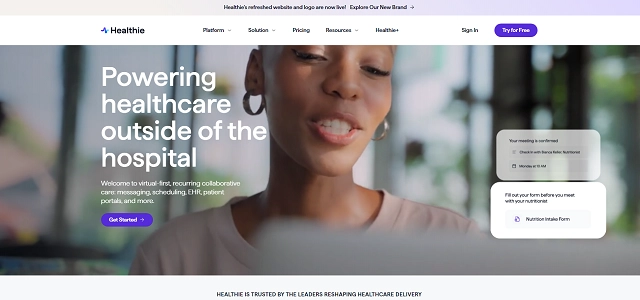 |
Healthie supports HIPAA-compliant messaging, scheduling, data management, and patient portals. Manage billing, insurance, and care plans in a single, compliant platform complete with workflow automation.
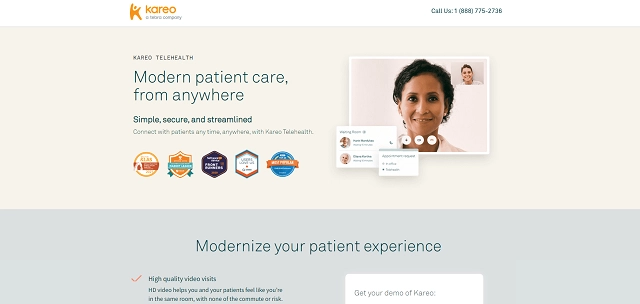 |
Kareo allows for one-on-one video chats and group meetings for up to 100 participants. Kareo integrates EHR and practice management into one platform, helping you connect with more patients and run a more efficient business. It even includes features for patient scheduling, waiting rooms, and custom links.
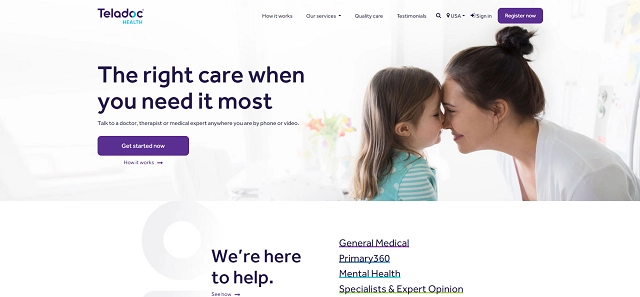 |
Teladoc is a medical group that hires its own care providers to offer virtual patient care worldwide. It likely won’t fit existing practices, but if you’re a provider interested in a new venture, this compliant software gives you reliable access to new patients.
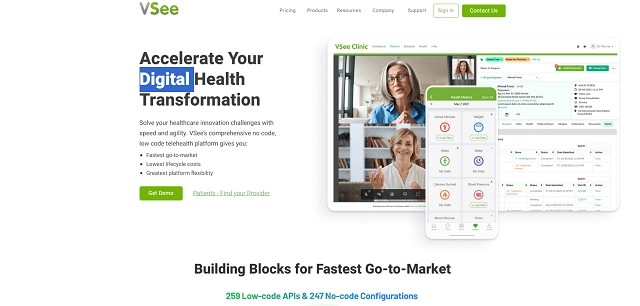 |
VSee is a no-code telehealth platform designed for non-technical users. It includes modules for scheduling, payment, custom patient portals, remote patient monitoring, and more. For compliance, VSee keeps a log of e-signatures and other documentation to simplify audits.
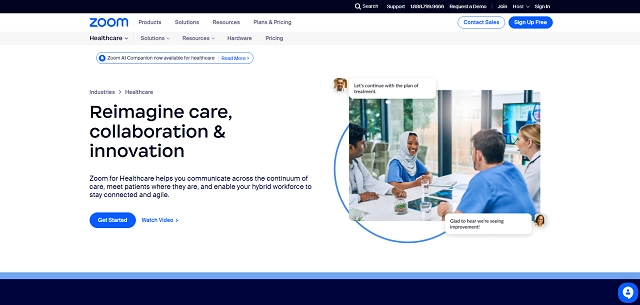 |
Zoom for Healthcare encrypts and secures patient data to support today's hybrid workforces. Organizations of all sizes can leverage Zoom for Healthcare to scale reliably and without sacrificing quality. Plus, it powers a variety of use cases, from virtual factory inspections to mobile telehealth carts and more.
Both HIPAA and telehealth will continue to evolve over time. Choosing a HIPAA-compliant platform is one of the best ways to protect your patients and practice long-term.
While the right telehealth software platform provides the structure for following HIPAA best practices, it can’t handle security for your entire organization. Solutions like the Reveal Platform by Next extend the security benefits of your HIPAA-compliant telehealth platform, securing you against data loss, insider threats, unmanaged endpoints, and countless other risks.
See Reveal’s power in action: Watch a cybersecurity demo now.
How do I know if a telehealth platform is truly HIPAA-compliant?
Their website will have information about compliance measures. Many telehealth platforms will be happy to produce their HIPAA compliance certification. You can also ask them to sign a business associate agreement (BAA) to share some of the responsibility of compliance with you as a vendor.
Can patients use HIPAA-compliant telehealth in an emergency?
No. Telehealth platforms are for non-emergency medical consultations or simple follow-ups. Always tell patients to call emergency services for life-threatening issues.
Are HIPAA-compliant telehealth platforms more expensive than non-compliant ones?
Costs vary by platform. Ultimately, the cost of not complying with HIPAA will overshadow the savings you see from using a cheaper, non-compliant platform. It’s always best to use HIPAA-compliant platforms in addition to your other HIPAA compliance plans.

Blog

Blog

Blog

Blog

Resources

Resources
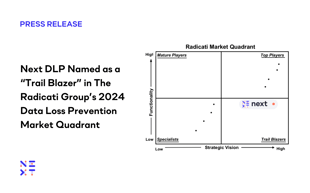
Resources

Resources
